| |
ABN 22 346 252 276
P.O. Box 2478,
Bakery Hill VIC 3354 |
|
|
Ballarat: The Early Years
Albert Coates was born on January 28 th, 1895 at Mt. Pleasant. As a child he was fascinated by study and his sister Evelyn recalled: 'I don't remember Albert milking. He was always studying.'
From the age of ten he worked in a butcher's shop on Saturdays from 7am to 10pm. He delivered parcels of meat to homes, he cleaned, spent time stringing sausages, scraping tripe and filling small bags of dripping. His pay was one shilling and occasionally a piece of tripe and a cow heel. Later he worked from 7am to 9am each weekday as well as Saturdays, earning three shillings a week. He gained the Merit Certificate at 11 years and left Mt. Pleasant Primary School .
He was again apprenticed to a butcher and his hours were weekdays from 7am - 6pm and 11pm at night on Saturday. Much to his father's distress, Albert was sacked for accidentally smashing the back of a butcher's cart.
However, Coates had an ambition for a career in medicine. To get into university you had to study in church schools or through independant teachers.
|
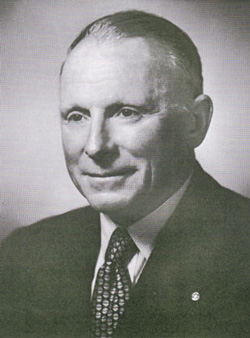 |
| Fortunately, his former primary teacher, Leslie Morshead, coached him two nights a week in Latin, French, History, English Literature and Maths, all for three guineas a term. Coates had joined the Ballarat Litho and Printing Company and was indentured as a book binder at six shillings a week, studying at night.
Eventually he gained five distinctions in the Junior Public Examination in 1913, qualifying to enroll at Melbourne University. As he could not afford to take his place at university, he moved to Wangaratta where he worked in the Postal Department and studied in his spare time. The momentous events of World War One were about to change Albert Coates fortunes forever.
|
|
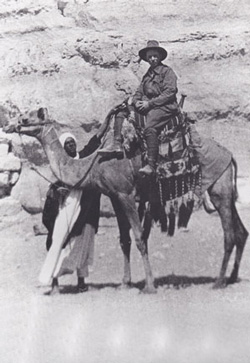
|
World War One
By 1914 Coates was in a position to start a university medical course, however World War One brought a sudden change of plan. Coates was an idealistic 19 year old when he enlisted at Wangaratta on 17 th August 1914, as a medical orderly attached to the 7 th Battalion 1 st A.I.F. His time on board was spent assisting the doctor inoculating the men against typhoid.
On the way to England he was encamped in Mena, Cairo , near the pyramids. One of his main tasks was to drive a springless horse drawn Maltese cart, transporting medical supplies and the wounded.
His main interest was the study of languages. He studied German on board ship and in Egypt he continued his study of languages at the Berlitz School and also took Arabic.
Coates was on board the fleet of transports and warships that headed for Gallipoli in April 1915. Coates watched in horror and frustration at the withering fire that cut down the first waves of landing troops. Although he was in the trench and gas warfare on the Somme where his duties were medical he was soon transferred, because of his linguistic talents, to the intelligence section of the Australian Army as the battalion's interpreter.
He left France in October 1918 and returned with other Anzacs to Australia , on leave. The war ended a few weeks later on November 11.
|
A Life in Medicine
Albert Coates studied medicine at Melbourne University between 1919 and 1924 after serving at Gallipoli. For some of this time he worked at the Censor's Department and then he transferred to the GPO in Spencer Street , as a postal assistant on the 10 pm to 6 am shift. In 1924 Coates was offered the Stewart Lectureship in anatomy. This was an event which changed the course of his career. It was a gateway to more study, and an opportunity to develop his teaching ability.
He gained degrees in Doctor of Medicine in 1926 and Master of Surgery in 1927 and was appointed Honorary Surgeon to Outpatients at the Melbourne Hospital in the same year. Through the depression, the outpatients work and emergency surgery proved a heavy load, but as well as this he developed his reputation as a surgeon and a teacher.
Coates' interest in neurosurgery led him to travel overseas in the mid 1930s. On his return he helped form a neurosurgical unit, and later in 1940 with a group of surgeons, the Neurosurgical Society of Australia.
At the outbreak of the Second World War Coates enlisted but was refused intil the centre of action shifted to the Pacific area. On 1st January 1941 he was called up.
|
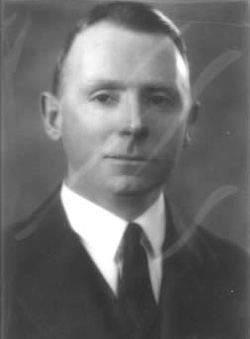
|
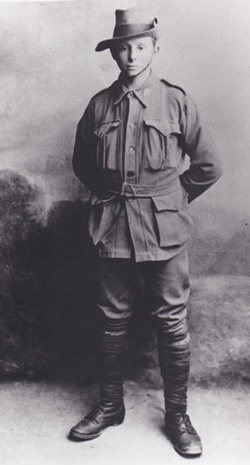 |
Prisoner of War Hero
When World War 2 broke out in 1939 Coates was nearing the age of 45. He felt a strong commitment to once again serve his country. and in January, 1941 sailed for Singapore with the 8 th Australian Division attached to a medical unit as Senior Surgeon with the rank of Lieut. Colonel.
At the fall of Singapore , with patients and hospital staff he embarked on a coastal steamer bound for Java. The ship was sunk by enemy fire and the survivors ended up on the Dutch controlled island of Sumatra . Coates had, on several occasions, taken the brave decision to stay with his unit and not to return to safety as ordered by the military. In March, 1942 the island was surrendered to the Japanese and Coates' ordeal as a prisoner of war began. With scarcely any medical equipment, all the POW doctors faced great odds to keep the prisoners alive.
Late in January 1944, Coates, with orderlies and others, was sent to the Nakompaton camp where the Japanese had built fifty wooden huts to accommodate ten thousand men. The sick lay on grass mats on wooden platforms.
Coates saved more POW's lives than any of the other doctors in the prison camps, through his use of improvised techniques and amputations. Many more were saved by his leadership, encouragement and example. To the brutalized POW's he was simply known as Bertie.
Albert Coates reflected that his greatest work was done in the appalling conditions of the Prisoner-of War camps on the Thai-Burma Railway.
|
Coates: The Post War Years
After his release from the prison camps of Thailand during World War 2 Albert Coates reported for duty as senior surgeon for in-patients at the Royal Melbourne Hospital although 32 kg below his normal weight. He faced a back log of 2,000 patients.
He was a delegate for the R.S.L at the Japanese Peace Talks and in 1946 he gave evidence at the War Crimes Tribunal in Tokyo . In 1951 he went to San Francisco as an observer at the signing of the Peace Treaty with Japan . He was a forgiving and compassionate man who was associated with the expression 'don't scratch the wounds, let them heal.' He was criticized for his soft post war attitude to Japan but he never departed from his stand on the issue.
His clinical lectures and bedside teaching have been described as compelling.
He became a member of the Fairfield Hospital Board of Management and in later years a new wing of the hospital was named after him.
|
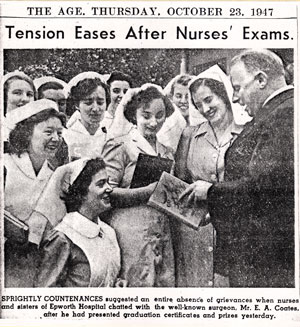 |
|
Coates fought for the adequate recognition of nurses, helping establish award wages and conditions.
Coates was involved in many community organisations and committees. He was active in Rotary International.
|
|
 |
|


